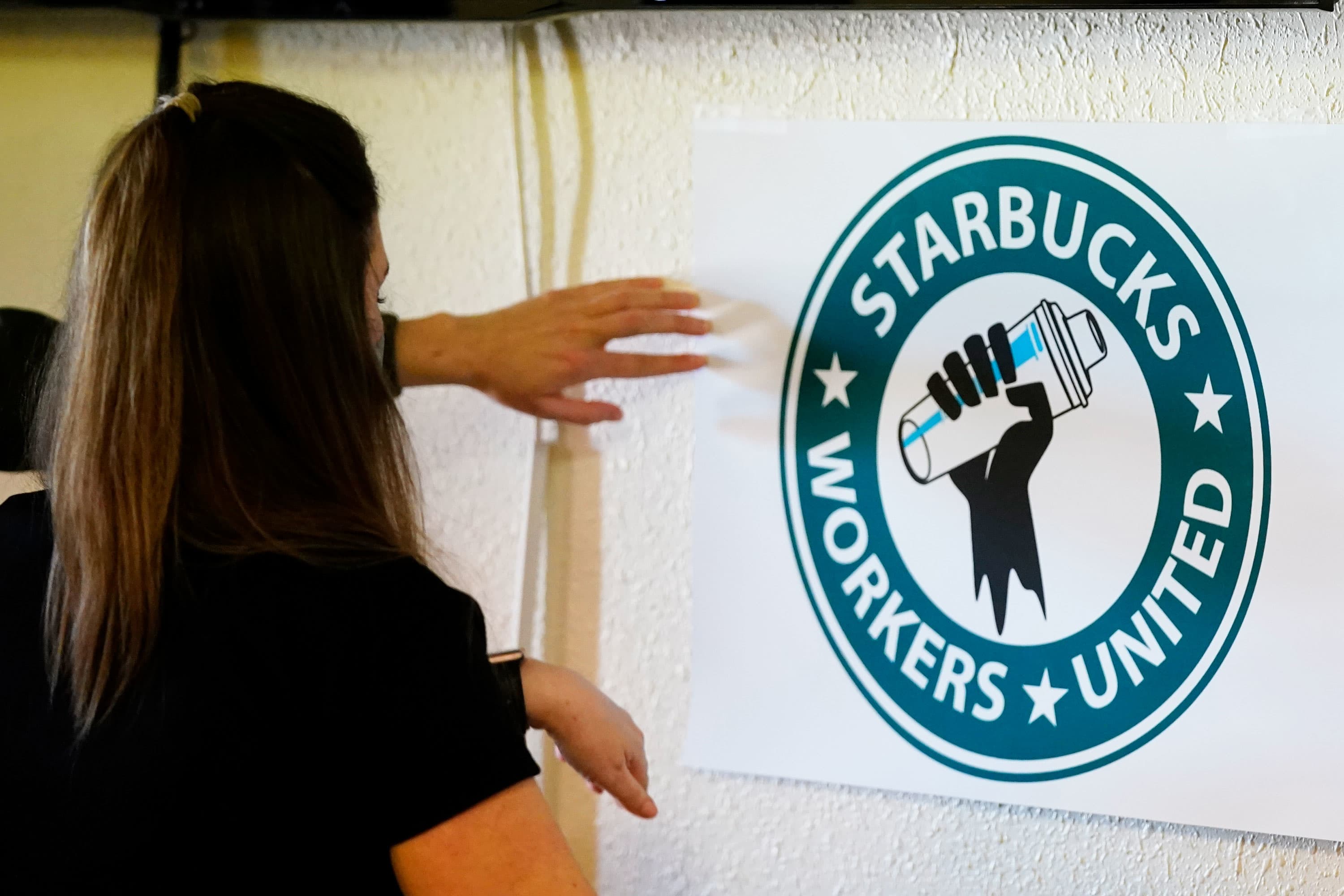Workers at a Starbucks location in Mesa, Arizona, voted in favor of forming a union, dealing a blow to the coffee chain as it faces a widespread organizing push from its company-owned cafes.
Employees at the cafe, which is located on Power Road and Baseline Road in Mesa, voted 25 to three in favor of unionizing under Workers United, a branch of the Service Employees International Union.
It’s now the third company-owned Starbucks location to vote in support of unionizing and the first outside of the Buffalo, New York, area.
To date, more than 100 Starbucks locations have filed for union elections, all within the last six months and doubling their count in the last month alone after victories in Buffalo. Those cafes represent a small fraction of Starbucks’ U.S. footprint, which includes nearly 9,000 company-owned restaurants, but it’s a sign that the restaurant industry could see its historically low unionization rate rise.
A second store in Mesa, Arizona, has also filed for a union election. Ballots from the NLRB were sent out Friday afternoon and will have to be received by March 18.
The National Labor Relations Board’s regional director will now have to certify the ballots, a process that could take up to a week. Then the union faces its next challenge: negotiating a contract with Starbucks. Labor laws don’t require that the employer and union reach a collective bargaining agreement. On top of that, workers who lose faith in the union can petition to decertify after a year, putting a ticking clock on negotiations.
After Starbucks workers at its Elmwood, New York, location won the first union for employees of a company-owned location, Starbucks’ North American head Rossann Williams wrote a letter to all U.S. baristas, saying the company would bargain “in good faith.”
Jefferies analyst Andy Barish wrote in a Thursday note to clients that unionizing doesn’t appear to be a major financial risk to Starbucks in terms of large hourly wage increases or benefit demands. However, the chain could suffer damage to its reputation if handled improperly, he said.
Starbucks has already faced allegations of union busting from Starbucks Workers United. The company has denied those claims. Its opposition to the union effort has included sending executives to Buffalo and Mesa stores.
“It is hard to imagine this issue turning into a maelstrom of negative PR for SBUX, but it does surely present near-term ‘headline risk’ for the stock, which has been weak of late,” Barish wrote.
Shares of Starbucks have fallen 11% over the last 12 months, dragging its market value down to $106 billion.
Three more Buffalo-area Starbucks locations have cast their ballots on whether to form a union, but Starbucks’ appeals to the National Labor Relations Board have led to a delay in the vote count. Mesa’s vote tally was also delayed for the same reason. Workers were originally expected to hear the result on Feb. 16.
